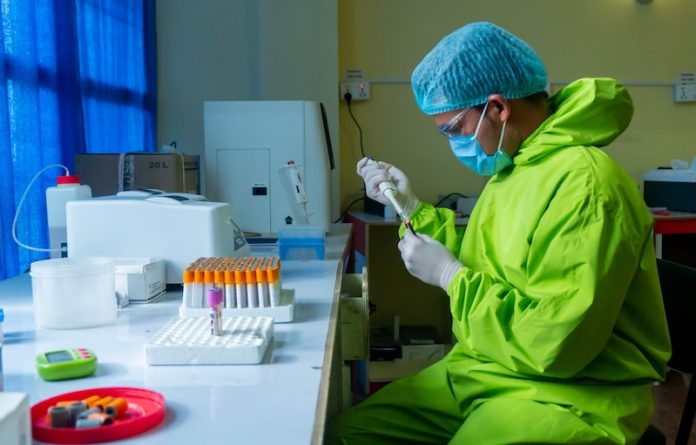
Scientists from the University of Pennsylvania found people hospitalized with COVID-19 are more likely to develop venous thromboembolism—a potentially life-threatening condition—than those hospitalized with influenza.
In the study, the team evaluates the absolute risk of hospitalized deep venous thrombosis or pulmonary embolism events within 90 days after admission.
They found this association both before and during vaccine availability, showing that the risk was not stemming from vaccination.
That’s particularly important because individuals say they do not want to receive a COVID-19 vaccination because of clotting risks. COVID-19 itself is the true risk of these dangerous clots, not the vaccines.
Venous thromboembolism, which is comprised of both deep vein thrombosis and pulmonary embolism, begins when a blood clot forms in a vein deep within the body, often the leg or pelvic region.
The condition is dangerous because the clot can block blood circulation.
During arterial thromboembolism, a clot causes a sudden interruption of blood flow to an organ or body part which in turn can lead to tissue damage, heart attack, or stroke.
Although COVID-19 is primarily considered a respiratory illness, some evidence suggests the virus may also induce excessive blood clotting, or hypercoagulability, in the body, but early studies on the topic were smaller and inconclusive.
In the study, the team analyzed data over 90,000 total patients.
Among people hospitalized with influenza, the 90-day absolute risk of developing venous thromboembolism was 5.3%.
For those hospitalized with COVID-19, the 90-day risk was 9.5% before vaccine availability and 10.9% after COVID-19 vaccines became available.
The 90-day risk of arterial thromboembolism was 14.4 percent in patients hospitalized with influenza compared with 15.8 percent in those with COVID-19 before vaccine availability and 16.3 percent during vaccine availability.
One explanation for the increased risk may be the coronavirus’s ability to infect endothelial cells, which can incite inflammation and abnormalities in the coagulation process.
However, the research team says more research is needed to confirm the association and investigate potential causes and possible mechanisms behind the blood conditions.
If you care about COVID, please read studies about how having had COVID-19 may harm your cognitive abilities, and shark antibodies may hold the key to stopping COVID-19.
For more information about COVID, please see recent studies about new way to predict severe COVID-19, and results showing new antiviral drug combo could effectively treat COVID-19.
The research was published in the Journal of the American Medical Association and conducted by Vincent Lo Re III et al.
Copyright © 2022 Knowridge Science Report. All rights reserved.



